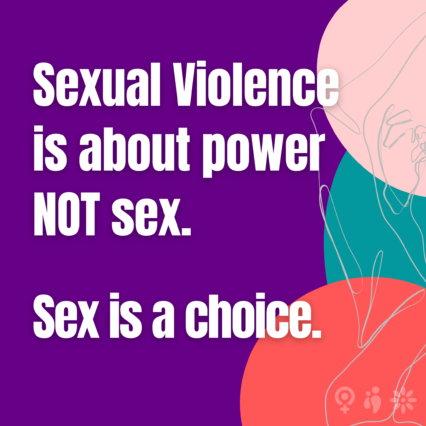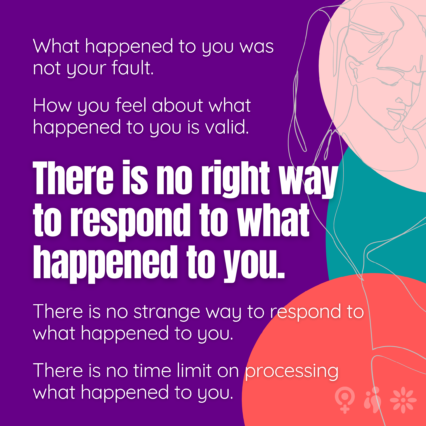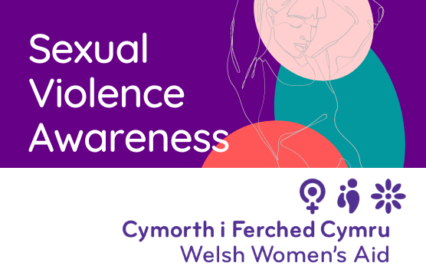Sophie Weeks, Welsh Women’s Aid Media & External Relations Officer, discusses the importance of breaking the silence and confusion that still surrounds sexual violence as part of Sexual Violence Awareness Week 2021.
It is easy to understand why people find sexual violence so difficult to think and talk about. Unless we work to support people directly affected by it, it is unlikely we will be familiar with relevant terminology, or with communicating our thoughts and feelings about such an intimate type of violation.
 It can also be particularly painful to think that someone we love has experienced this kind of trauma and incredibly overwhelming if it happens to us personally. But while we remain uncomfortable and silence persists so does a culture of shame, stigmas, and unhelpful stereotypes.
It can also be particularly painful to think that someone we love has experienced this kind of trauma and incredibly overwhelming if it happens to us personally. But while we remain uncomfortable and silence persists so does a culture of shame, stigmas, and unhelpful stereotypes.
On screen, we are used to narrow depictions of young, conventionally attractive female sexual violence survivors who are broken by their trauma, who lose everything, who withdraw, become desperate, or who blindly seek revenge. The constant use of sexual violence as an all-encompassing trope to define a women’s character, wholly explain her personality traits or as a limp means to drive forward a flailing plot is not only lazy writing but reinforces the harmful misconceptions and assumptions about who survivors are, how they behave and what they need.
Though there are of course exceptions to this and the conversation around representation behind and in-front of the camera is broadening, so much more needs to be done before diverse depictions of survivors are normalised in mainstream media.
This Sexual Violence Awareness Week at Welsh Women’s Aid we are breaking the silence around sexual violence.
The reality is that sexual violence happens to all types of people; survivors can be older women, people with disabilities, transgender women and men, and non-binary individuals. Survivors can be Black women, ethnic minority women, white women, and men. Survivors can be girls.
 There is no standard response to sexual violence. There is no normal or abnormal way to react- during and after the attack- and no way to predict how sexual violence will impact an individual. There is no timeline for how long a survivor will feel affected by what happened, and there is no right and wrong point during that journey to ask for help.
There is no standard response to sexual violence. There is no normal or abnormal way to react- during and after the attack- and no way to predict how sexual violence will impact an individual. There is no timeline for how long a survivor will feel affected by what happened, and there is no right and wrong point during that journey to ask for help.
How an individual responds is not a reflection on their strength, resilience or character, that they are surviving is a testament to all three.
How survivors process trauma may be dependent on their personal circumstances, their access to information, their trust of and access to systems and services, the means and openness with which they are able to communicate with their support networks, their relationship with their body, with their mental health, with food, with sleep, with their sexuality – the list is endless.
Dr Nina Burrowes says: “However someone responds to abuse, what they are ultimately trying to do is cope. Even if their behaviour looks destructive, they are trying to take back a sense of control, trying to feel safe, trying to make sense of what happened to them.” It is important to be mindful of this and view survivors with openness and compassion, not judgement.
While sexual violence is overwhelming and may inform a survivor’s outlook and approach to certain situations, it does not define them. Beginning in Sexual Violence Awareness week, Welsh Women’s Aid are sharing graphics and resources offering support and advice to survivors on topics such as reconnecting with the body after trauma, mental health and wellbeing, sleep, sex after violence and advice for partners. The messages underpinning the campaign are; what happened was not your fault, what happened does not define you, your responses and needs are valid and important, there is help for those who need it.
If you or someone you love is a survivor of sexual violence, there is support available. The Live Fear Free helpline can offer confidential support and advice 24/7 in a language the caller feels most comfortable in communicating in. They can put survivors in touch with specialist support services.
Call: 0808 80 10 800
Text: 07860 077333
Webchat: livfearfree.gov.uk
You can support Welsh Women’s Aid’s Sexual Violence Awareness campaign by following us on Twitter, Instagram and Facebook.











